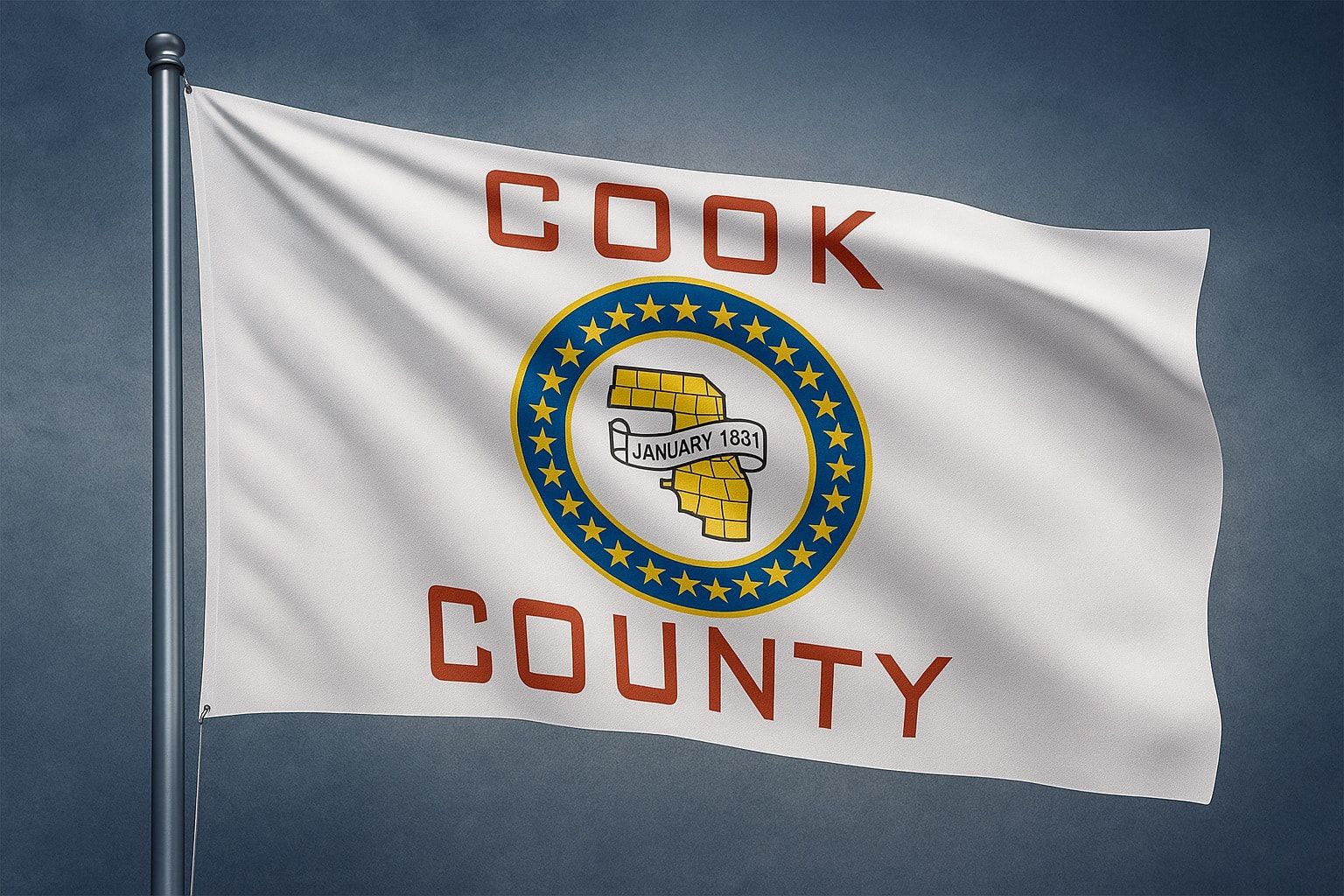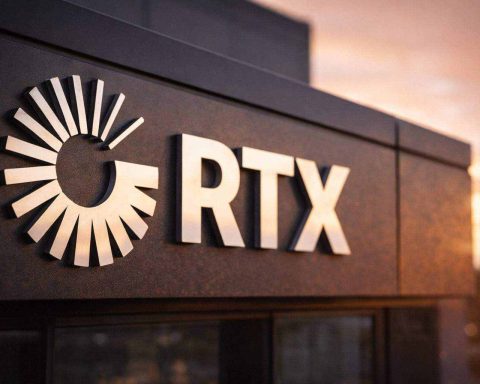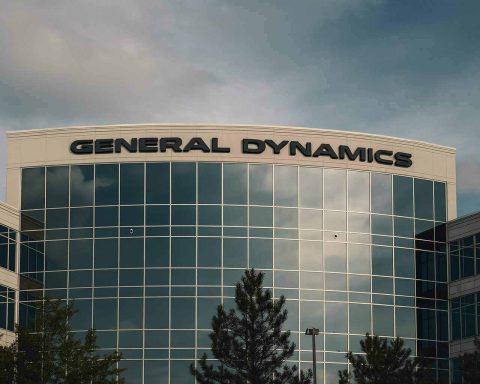After months of delay from a troubled tech overhaul, Cook County’s 2024 second‑installment property tax bills are being mailed on November 14, 2025, with payment due December 15. Here’s how the late bills affect homeowners, schools and local budgets — and what you should do now.
Key Facts at a Glance
- Mailing date: Friday, November 14, 2025
- Due date: Monday, December 15, 2025 Cook County+1
- Who’s affected: Roughly 1.8 million Cook County property owners Cook County
- How late is it? Nearly four months behind the usual July/August schedule WTTW News+1
- Penalty for missing the deadline: Interest of 0.75% per month on unpaid balances El-Balad.com
- Next bill: The first installment of 2025 property taxes will not be due before April 1, about a month later than normal El-Balad.com+1
Bills Hit Mailboxes After Months of Confusion
CHICAGO — After a chaotic year of delays, Cook County homeowners are finally seeing their 2024 second‑installment property tax bills land in mailboxes starting today, November 14, 2025.
County officials previously announced that the bills — covering Tax Year 2024, payable in 2025 — would be mailed by November 14 and must be paid by December 15. Cook County+2WTTW News+2
Normally, second‑installment bills are released in early July and due in early August. This year, the schedule slipped by almost four months as Cook County moved off its 1980s‑era mainframe and onto a new, problem‑plagued tax system. WTTW News+2The Chicago Reporter+2
Today’s mailing confirms what local and national outlets have been reporting all week — and fresh coverage published this morning again underscores the December 15 deadline and the impact of the delay on both taxpayers and local governments. El-Balad.com+1
Why the Bills Are So Late This Year
Officials point to a “critical overhaul” of the technological backbone of the property tax system as the primary reason bills are so late. Chicago Sun-Times+1
Here’s what went wrong:
- System migration: County agencies retired an old mainframe and shifted to a new integrated system to calculate assessments, exemptions and tax rates for 1.8 million parcels. Cook County+1
- Vendor issues: Tax collectors and watchdogs have blamed long‑running problems with a contract involving Tyler Technologies, a Texas‑based software vendor brought in to modernize the system. Illinois Policy
- Quality concerns: Officials say they delayed sending bills until they were confident the new system was generating accurate numbers, rather than risk mailing millions of incorrect bills. FOX 32 Chicago+1
The result: a compressed 30‑day payment window between the day bills go out and the day they’re due — half the time many homeowners are used to having.
What You Should Do Right Now
1. Don’t Wait for the Paper Bill — Check Online
Even if your envelope hasn’t arrived yet, your bill should be available on the Cook County Treasurer’s website, where you can search by Property Index Number (PIN) or address. Cook County Treasurer+1
Checking online today lets you:
- See the exact amount due by December 15.
- Confirm that all exemptions (homeowner, senior, disability, etc.) are applied. Cook County Treasurer
- Download a copy of your bill for your records and for future income tax deductions.
2. Choose a Payment Method That Fits Your Situation
According to guidance from Cook County and local municipalities, you have several payment options: City of Evanston+1
- Online:
- Pay at the Treasurer’s website directly from your bank account (no fee).
- You can also use credit or debit cards, though processing fees apply.
- In person:
- Any Chase Bank branch in Illinois.
- Participating community banks across Cook County.
- The Treasurer’s Office at 118 N. Clark St., Room 112, Chicago.
- By mail:
- Send checks to: Cook County Treasurer, PO Box 805436, Chicago, IL 60680.
- Mail early enough that the payment is received by December 15.
Remember: Late payments accumulate interest at 0.75% per month, so even a short delay can be costly over time. El-Balad.com+1
3. If You Have a Mortgage Escrow, Confirm With Your Lender
If your mortgage servicer pays taxes from an escrow account, they should receive electronic billing information directly. Still, it’s smart to:
- Log into your mortgage account and confirm the tax disbursement date.
- Make sure there’s enough money in escrow to cover the larger‑than‑usual bill if your assessment went up.
Missing Exemptions or See an Error? Act Fast.
Because bills are so late, homeowners who discover problems have less time than usual to fix them before the due date.
Local governments like Evanston are reminding residents that if an exemption is missing — such as a homeowner, senior, or disabled person exemption — you can file an Exemption Certificate of Error (C/E) with the Cook County Assessor’s Office, including at its Skokie branch in the Skokie Courthouse. City of Evanston+1
Key points:
- Appointments are strongly recommended due to long wait times. City of Evanston
- Adjusted bills typically take 2–3 weeks to be re‑issued after approval — which may push you very close to, or past, the December 15 deadline. City of Evanston+1
- If you can’t get a corrected bill in time, ask the Treasurer’s Office or a tax professional about how to handle payment so you don’t incur avoidable penalties.
For disputes about your assessment itself, you may need to appeal through the Cook County Board of Review, though that process is separate from paying this specific bill and has its own deadlines. Wikipedia+1
How the Delay Has Hit Schools, Towns and Libraries
This delay hasn’t just stressed homeowners. It’s also thrown a wrench into the finances of local governments that depend heavily on property taxes.
A Bridge Loan to Keep Services Running
In anticipation of the delay, Cook County Board President Toni Preckwinkle launched a zero‑interest Bridge Loan Program for local taxing bodies — including cities, villages, school districts and park districts — that were forced to wait months for revenue they usually receive in late summer. HF Chronicle+1
- The program offers up to $300 million in short‑term, no‑interest loans. El-Balad.com+1
- Nearly 20 local governments will share more than $20 million from the fund in this first round, according to county documents and local reporting. HF Chronicle+1
Even with that help, some agencies have taken on additional borrowing:
- Chicago Public Schools borrowed $450 million to bridge the gap caused by the late bills and will pay about $23.2 million in interest on that borrowing in fiscal year 2026. Illinois Policy
- Other agencies — including suburban library districts — have discussed or pursued tax‑anticipation warrants or similar loans just to cover payroll and basic operations while waiting for tax money to arrive. Oak Park Public Library+1
Those costs don’t disappear; they are ultimately borne by taxpayers through future budgets.
Cook County’s Property Tax Burden Was Already High
This year’s delay is landing on top of a long‑term trend: property taxes in Cook County and across Illinois are among the highest in the nation.
Research cited by the Illinois Policy Institute shows: Illinois Policy+1
- Illinois has the highest effective property tax rate in the U.S.
- Cook County property tax bills have risen about 78% since 2007, while median property values increased only around 7.3% over the same period.
- Countywide collections last year reached approximately $18.3 billion, up about $706 million from the year before — marking at least the 30th consecutive year of increases.
Meanwhile, the Cook County Assessor reports that for 2024, Chicago’s total assessed value climbed sharply, with commercial assessments rising faster than residential. That shift slightly reduced homeowners’ share of the tax base, but many individual bills are still expected to rise. El-Balad.com+1
For households already stretched by housing, food and insurance costs, a big bill arriving right before the holidays can be especially painful.
Will the Timeline Go Back to Normal?
County leaders insist this year’s disruption is not permanent.
- A multi‑agency working group convened by President Preckwinkle is meeting weekly to bring the property tax calendar back to its traditional rhythm. WTTW News+1
- Under state legislation approved earlier this fall, the first installment of 2025 tax bills will be due no earlier than April 1, giving homeowners more time between this delayed bill and the next one. El-Balad.com+1
Still, recent public documents about Cook County’s finances acknowledge that the full impact of the delay — including how quickly collections catch up and how much bridge funding is needed — is not yet fully measurable. Cook County+1
For now, homeowners should assume December 15 is firm and plan accordingly.
How to Budget Around the December 15 Deadline
A few practical steps can soften the blow of a big bill on a tight timeline:
- Run the numbers now.
Look at your bill versus last year’s. If it jumped sharply, consider why: higher assessment, loss of an exemption, or a taxing district’s levy increase. - Adjust your holiday spending.
It’s not fun, but prioritizing the tax bill may save you more than you’d save by avoiding credit‑card interest or late penalties. - Talk to your lender or advisor if you’re short.
While the Treasurer’s Office cannot waive interest for late payments, a financial advisor or lender may help you explore short‑term options that are less expensive than simply missing the deadline. - Track documents for income tax time.
If you itemize deductions, keep your 2024 second‑installment receipt handy for your 2025 federal return (and any state tax benefits that apply).
The Bigger Picture: A Push for a Fairer, More Predictable System
Advocates, researchers and even some county officials say this year’s delays show how fragile — and confusing — the property tax system can be:
- Complex assessment formulas, overlapping taxing bodies and frequent appeals make it hard for homeowners to predict bills from year to year. The Chicago Reporter+1
- Sudden delays in sending bills can destabilize local budgets, forcing school districts, libraries and municipalities to borrow or cut services. Illinois Policy+2Oak Park Public Library+2
Reform ideas range from targeted relief for homeowners whose bills spike more than a set percentage, to broader changes in how local governments rely on property taxes to fund operations. The Chicago Reporter+1
Those debates will take time. In the meantime, today’s mailing marks a long‑awaited step toward normalcy — even if “normal” in Cook County still means high property taxes and close attention to due dates.
Bottom Line for November 14, 2025
- Your 2024 second‑installment Cook County property tax bill is being mailed today.
- Payment is due Monday, December 15, 2025.
- A delayed tech overhaul and vendor issues caused the months‑long lag, but the deadline is now set.
- Check your bill online, confirm exemptions, and make a payment plan now, not in mid‑December.
This article is for general information only and is not tax, legal or financial advice. For personalized guidance, consult a qualified tax professional or attorney.









